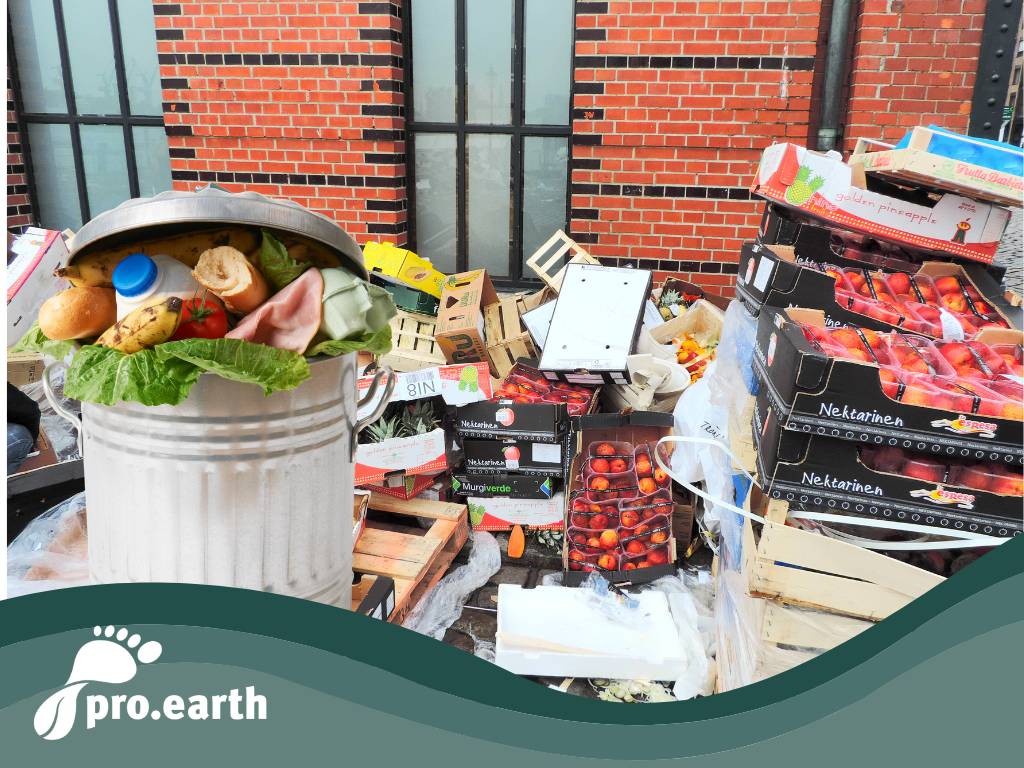Save food and save 400 euros

The Greenpeace long-term check on the shelf life of food has revealed the following: Five out of six foods are edible even 28 days after the best-before date. Every household can save around 400 euros a year by relying on their own senses when it comes to Striezel and co. Take part in our big #proearth community challenge 2023 and save food!

One third of the food produced worldwide ends up in the trash! Food waste releases 3.3 gigatons of CO2 emissions every year!
So take part in our Community Challenge 2023 and save 2.10 kg of CO2 per person per day by saving food and fighting against waste!
Plan against food waste
The Greenpeace long-term check on the shelf life of food has produced some impressive interim results: Even one month after the best-before date (BBD) has passed, fresh eggs, Striezel, mixed bread, smoked rolls and cream cheese are safe and still edible. Only the colored, hard-boiled eggs failed the test by the Food Testing Institute (LVA). Greenpeace started the investigation in March and will continue to have the products tested two and three months after the best-before date.
Those who rely on their own senses and evaluate food according to appearance, smell and taste not only protect the environment, but also save money: according to the Climate Ministry, around 400 euros worth of edible food per household per year ends up in residual waste. Greenpeace is calling on the German government to draw up an action plan against food waste with legally binding reduction targets and reporting obligations for large companies.
1.6 billion euros end up in the garbage can
"The Greenpeace test clearly shows that the best-before date is not an expiration date. If you look, smell and taste, you waste significantly less food and also save money," says Sebastian Theissing-Matei, agricultural expert at Greenpeace. "Every year, 1.6 billion euros worth of food is simply thrown into the garbage can in private households in Austria." Bread and pastries end up in the bin particularly often. Many foods are even disposed of in their original packaging in the residual waste.
According to Greenpeace calculations, around 830,000 tons of edible food are thrown away in Austria every year. This corresponds to 26 kilograms of food per second. Depending on the estimate, a third to half of the waste in Austria comes from private households.
There are several reasons for this. These include buying too much or misunderstanding the best-before date.
17 percent of all food produced is thrown away
According to the United Nations Environment Programme (UNEP), 931 million tons of food are thrown away globally every year, over 60 percent of which comes from private households. This corresponds to 17 percent of all food produced. Due to the poor data situation, non-edible organic waste such as bones, egg shells, potato peelings and the like are included here.
We want #actioninsteadofspeech! You too? Then join in!
Further links:
Community Challenge 2023 - Do good, save CO2 and help your community win the "pro.earth Climate Protection Award 2023". You can also win great prizes.
Link to the laboratory results can be found here: https://act.gp/41sYwS8
Link to the best-before date factsheet can be found here:
https://act.gp/43ppoUK






